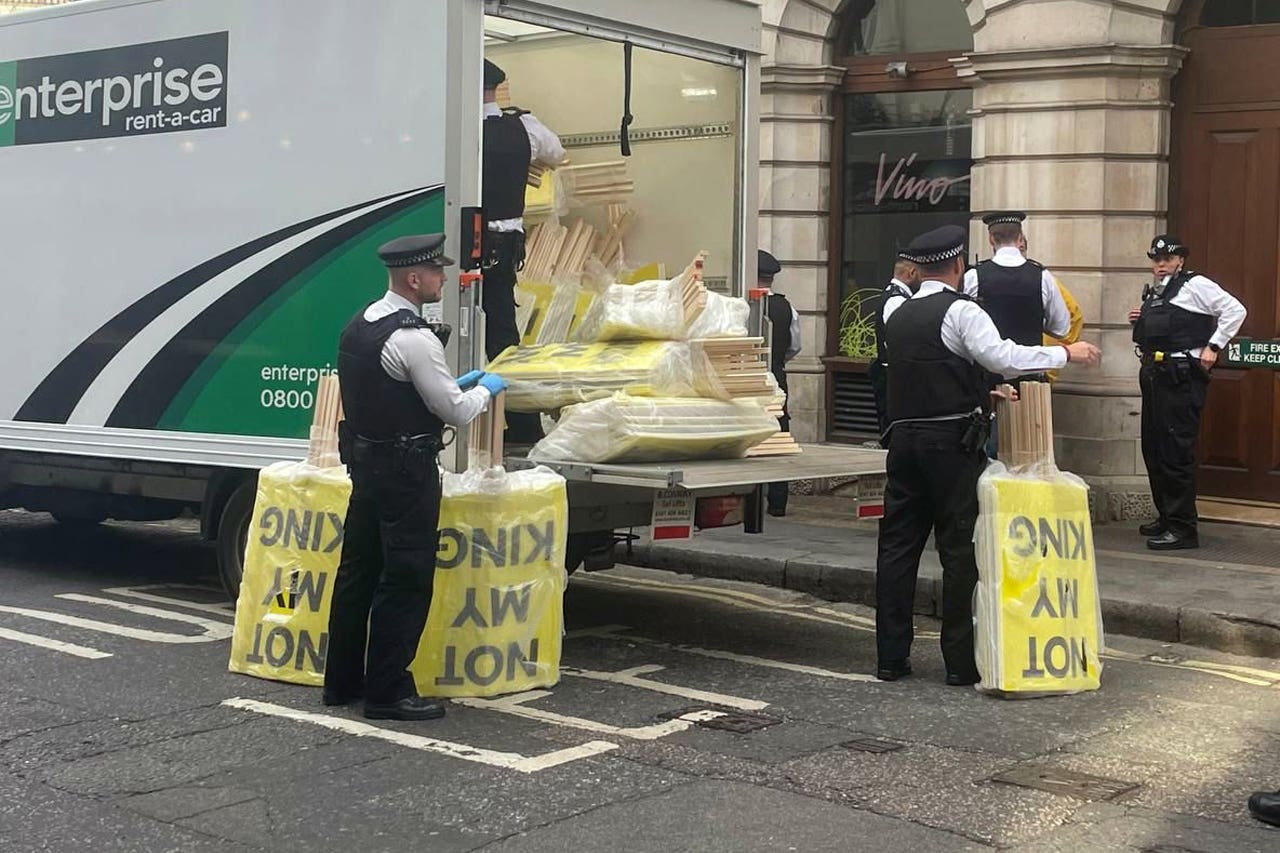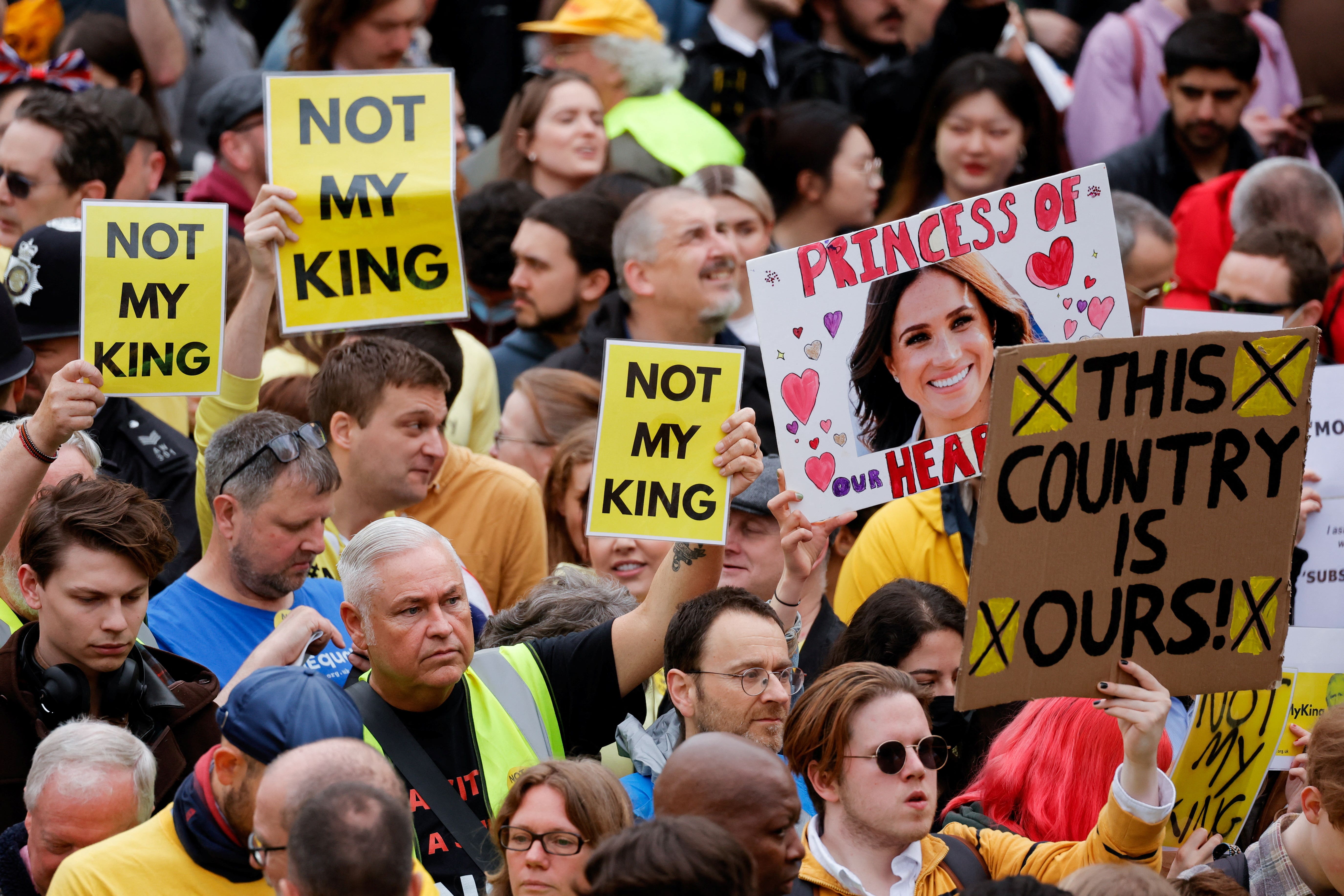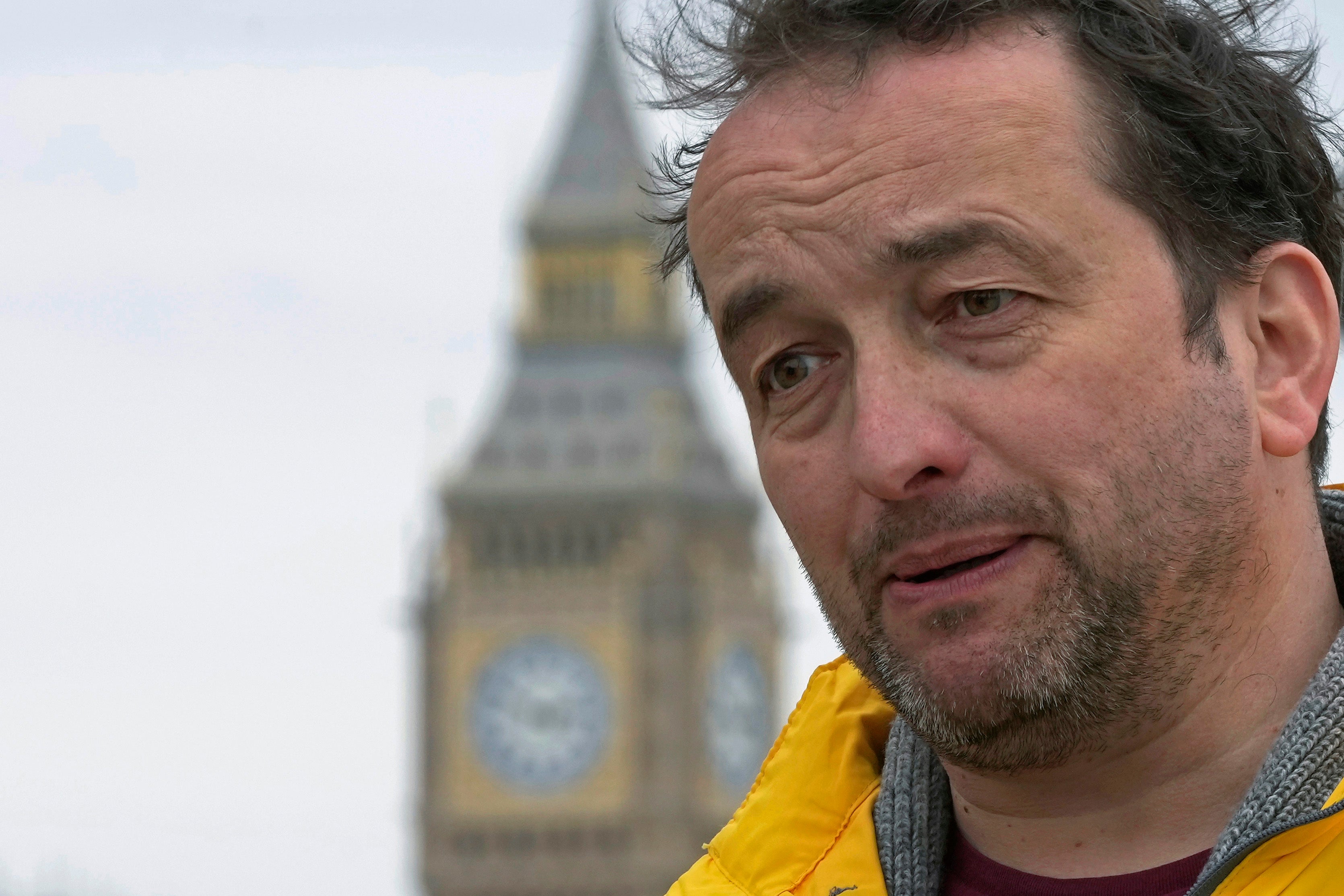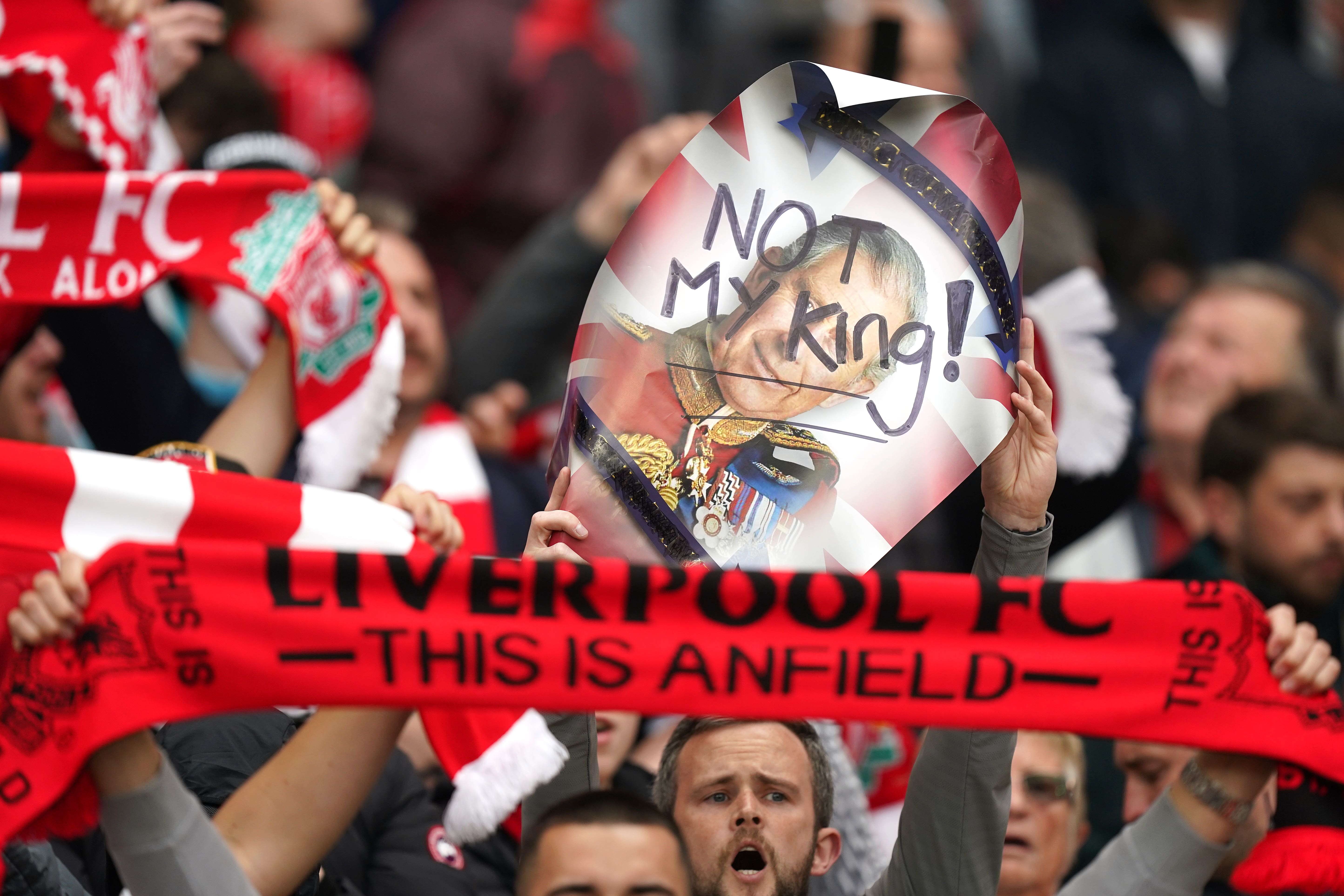Met Police ‘regret’ amid arrest of six protesters ahead of King’s coronation
The force was threatened with legal action after deciding to bring no further action against the group
Scotland Yard has expressed regret that the six people arrested ahead of the King’s coronation were unable to join fellow anti-monarchy protesters. The Metropolitan Police were threatened with legal action when no charges were brought.
Republic chief executive Graham Smith said a chief inspector and two other Metropolitan Police officers personally apologised to him over what he called a “disgraceful episode” after they visited him on Monday evening.
Prime Minister Rishi Sunak had earlier backed the Met over the dozens of arrests of protesters amid concerns they were cracking down on the right to protest.
The Metropolitan Police issued a lengthy defence as it confirmed Mr Smith and five others have been told they face no further action after being arrested on Saturday and bailed.
The force said it had arrested the group using new powers under the much-criticised Public Order Act after it was believed items found alongside a large number of placards could be used as “lock-on devices” to cause disruption.
“Those arrested stated the items would be used to secure their placards, and the investigation has been unable to prove intent to use them to lock on and disrupt the event,” the statement said.
“This evening, all six have had their bail cancelled and no further action will be taken.
“We regret that those six people arrested were unable to join the wider group of protesters in Trafalgar Square and elsewhere on the procession route.”
Mr Smith said the three officers apologised to him at his home in Reading, Berkshire, before handing back the phone straps they arrested him over.
“They seemed rather embarrassed, to be honest,” he said. “I said for the record I won’t accept the apology. We have a lot of questions to answer and we will be taking action.”
Scotland Yard said 52 of the 64 arrests made during its coronation operation on Saturday related to concerns individuals were going to disrupt the pageantry.
The force insisted its action was “targeted” at those believed to be “intent on taking this action”.

“Any suggestion all protest was prohibited is not correct,” it added.
The force acknowledged that at least one of the six people arrested while unloading placards from a vehicle in St Martin’s Lane had engaged with its protest liaison team, but said those officers were not present during the arrest.
“Taking into account the information that people were seeking to seriously disrupt the event, and the significance of the security operation, officers had been briefed to be extremely vigilant and proactive,” it said.
Mr Smith said the speed with which they dropped any action against the group showed officers were aware “they had made a very serious error of judgement”.
“I’m obviously relieved they dropped it so quickly but very angry they even went down this road, robbing people of their liberty for absolutely no reason,” he said.

“There was no evidence of any ability or intent to commit any offence and they simply decided to arrest us and that is outrageous.”
Mr Sunak had defended Scotland Yard’s operation and denied officers were acting under pressure from ministers.
“The police are operationally independent of government, they’ll make these decisions based on what they think is best,” he told broadcasters during a visit to Hertfordshire.
“Actually, I’m grateful to the police and everyone who played a part in ensuring that this weekend has gone so well, so successfully and so safely, that was an extraordinary effort by so many people and I’m grateful to them for all their hard work.”
But Mr Smith believed officers had “every intention” of arresting demonstrators and used the straps as a “pre-text” to detain the group under the new powers making locking-on to an object a jailable offence.

He raised fresh concerns about the Public Order Act signed into law last week, which tips the balance against protest, including by lowering the definition of “serious disruption”.
“The whole thing was a deliberate attempt to disrupt and diminish our protest,” he told BBC Radio 4’s Today programme.
“They stopped us because the law was introduced, rushed in last week, to give them the powers to stop us on any flimsy pretext.”
Labour was not committing to repealing the act despite harbouring concerns about its use.

Andrew Gwynne , the shadow public health minister, said the Act gave “disproportionate” powers to the police but the party was not committing to repealing it if it enters government.
Instead, he told Sky News: “I think the next Labour government will look very carefully at this legislation.”
Mr Gwynne defended the right to protest and suggested revellers supporting the coronation should have drowned out the dissent.
“That would’ve been the appropriate approach, to drown out those that wanted to protest rather than maybe heavy-handed practice that some have suggested may have taken place,” he said.
Ken Marsh, head of the Metropolitan Police Federation representing officers from the rank of constable to chief inspector, said police were acting both lawfully and “impartially”.
“Protesting can take place in this country but it’s the level to which you want to perform that protest that we have to balance and deal with what’s put in front of us impartially. That’s what was done,” he told Today.
This article was amended on May 9 2023 to make it clear that the regret expressed by the Metropolitan Police was because the six anti-monarchy demonstrators who were arrested had been ‘unable to join the wider group of protesters in Trafalgar Square and elsewhere on the procession route’. The force did not say it regretted making the arrests.




